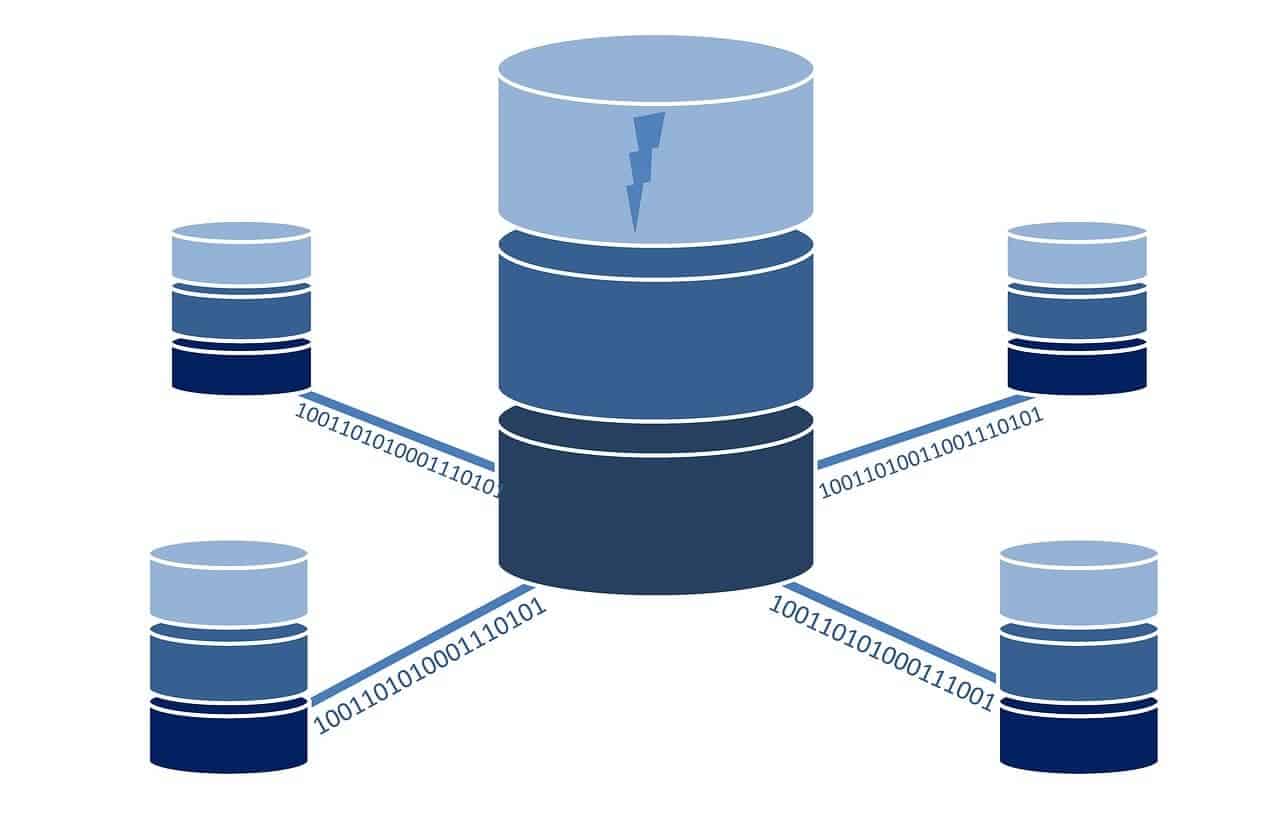As businesses embrace the power of digital transformation, many employers are now searching for new hires with more extraordinary technical skills.
This has resulted in a surge in demand for job seekers who understand multiple database technologies, such as Oracle DBA and SQL DBA, Oracle DBA, and MySQL DBA, as well as Oracle DBA and DB2 DBA.
This article looks at dual database knowledge and explores how understanding two database technologies can benefit employers and employees. We’ll also provide tips on acquiring dual database knowledge and how it can help freshers looking to land that perfect job.
Overview of Dual Database Knowledge:
The ability to work with two or more different databases is an essential skill many IT professionals need in the modern job market. Employers increasingly demand applicants with knowledge of dual database systems such as Oracle and Microsoft SQL Server.
Understanding both databases gives applicants a competitive edge, as they can quickly switch between them and have the flexibility to work across multiple systems. For many IT jobs, having dual database knowledge is a must-have skill. Freshers who acquire this knowledge can expect more job opportunities, better salaries, and career growth opportunities.
What is Dual Database Knowledge?
Dual database knowledge is a broad term that covers the knowledge of two different types of databases. It usually refers to the ability to work with relational and non-relational databases.
Relational databases store data in tabular form, while non-relational databases store data as documents, graphs, or other objects. Knowledge of both types of databases can benefit those looking for job opportunities. It allows employers to use either type of database and demonstrates a knowledge base that stretches across several disciplines.
Moreover, employers can be confident that the applicant understands data storage and retrieval fundamentals. In today’s competitive job market, dual database knowledge can be a valuable asset for any fresher.
Benefits of Having Dual Database Knowledge:
They know two or more databases great benefits freshers in the job market. With dual database knowledge, freshers can become invaluable assets to any organization.
By knowing different databases, freshers can easily switch between different platforms, allowing them to adapt to challenges presented by different fields and roles quickly.
Additionally, knowing two or more databases gives freshers a competitive edge that can help them land the job of their dreams. With their skillset and technical capabilities, freshers can confidently apply for jobs requiring dual database knowledge and receive better pay and job opportunities.
How Does Dual Database Knowledge Improve Job Opportunities?
The job market follows suit as our digital world increasingly relies on massive amounts of data stored and managed in databases. Knowledge of two databases can be a valuable asset for potential freshers as employers increasingly seek professionals who can effectively manage and manipulate data across multiple databases.
Knowing multiple databases allows freshers to demonstrate a broader skill set and understanding of database systems, opening doors to a more comprehensive range of job opportunities. Additionally, knowing multiple databases allows freshers to quickly adjust to changes in technology and company protocols, making them more versatile and desired in the job market.
Ultimately, understanding and mastering two databases can significantly improve a fresher’s job prospects and success rate in their career.
Skill Set Required for Dual Database Knowledge:
With the increasing importance of data in the modern economy, having dual-database knowledge can significantly improve job prospects for freshers. A specialized knowledge set is required to use and manage dual databases effectively.
Depending on the type of database, the skill set can include knowledge of Structured Query Language (SQL), NoSQL, database architecture and design, software engineering, database analytics, and reporting.
Understanding security protocols, backup methods, and database maintenance is crucial for skilled database management. With comprehensive skills, freshers can stand out when applying for jobs requiring dual-database knowledge.
Common Dual Database Knowledge Combinations:
Regarding dual database knowledge, several combinations are commonly seen among freshers. The most popular combinations include Oracle and SQL, MongoDB and SQL, MongoDB and Oracle, MySQL and PostgreSQL, and Cassandra and Oracle.
These combinations provide a comprehensive overview of the different types of databases organizations use today and a comprehensive knowledge base that can apply to various jobs.
Furthermore, knowing how to use these databases together can give a job applicant a distinct advantage.
Oracle DBA and SQL DBA:
Dual database knowledge can be incredibly beneficial for freshers looking to expand their job opportunities. Oracle Database Administration (DBA) and Structured Query Language (SQL) Database Administration (DBA) are two widely used and essential skills within the Information Technology field.
Proficiency in Oracle and SQL DBAs can open doors in various IT roles, from developing and managing complex databases to supporting and improving system performance.
Furthermore, having a deep understanding of Oracle and SQL will give a fresher the ability to manage various database-driven projects and ensure their success effectively.
Oracle DBA and MySQL DBA:
Knowing both Oracle DBA and MySQL DBA provides a competitive advantage for freshers. Employers appreciate the potential to hire a candidate who can manage databases and efficiently handle tasks.
Oracle DBA caters to enterprise-level operations, while MySQL DBA focuses on smaller projects, but both require the same fundamental technical skills.
Freshers with dual knowledge of both databases can show their competency in the job market, enhancing their job prospects. Moreover, freshers can quickly adapt to any database development platform, giving them an edge over those with only Oracle or MySQL expertise.
Oracle DBA and DB2 DBA:
As the IT industry grows, more companies prefer hiring professionals with dual database knowledge, especially in Oracle DBA and DB2 DBA. Certification and experience in Oracle and DB2 databases can open up various job opportunities for freshers. This dual knowledge provides a competitive edge over other freshers, who only possess a single database knowledge.
Moreover, Oracle DBA and DB2 DBA offer a variety of solutions for database-related tasks. Numerous job roles are available in the database, from administrator to developer.
Expertise in Oracle and DB2 databases can provide various job opportunities and career advancement. Therefore, it is highly beneficial for freshers to obtain dual database knowledge to make themselves more marketable in the IT industry.
Tips on Acquiring Dual Database Knowledge:
Acquiring dual database knowledge can be an excellent asset for freshers looking to maximize their job opportunities. Here are some tips to help you get started:
- 1. Look into certification programs in database technologies. Certifications demonstrate that you have a basic understanding of the theories and principles behind two database technologies. They also show employers that you have invested the time and effort to demonstrate your commitment to the database field.
- 2. Consider enrolling in database courses offered by colleges and universities. Many learning institutions provide courses that cover the fundamentals of two different database systems. You can use these courses to understand both database systems comprehensively.
- 3. Leverage your network. Attend database-related conferences, workshops, and other events to learn from experienced database professionals and enhance your knowledge and skill set. You can also join online or physical database communities to connect with other experts in the field and explore databases from different perspectives.
Following these tips can increase your chances of succeeding in the database field and acquiring dual database knowledge.
Benefits for Job Seekers:
Having dual database knowledge can be a great asset for job seekers entering the workforce. With the increasing demand for data storage and analysis, having expertise in two databases can be the difference between landing a job and searching for something else.
Not only does having dual database knowledge help with job search, but it also provides more opportunities for professional development. By learning two databases, individuals can expand their skill set, stay ahead of trends and technology, and become more attractive to employers.
Additionally, dual database knowledge can bring a higher salary as employers are often willing to pay a premium for individuals with a more profound knowledge of two databases. With the proper dedication and investment in learning two databases, job seekers can improve their employment prospects and gain valuable experience.
Benefits for Employers:
Having an employee with dual database knowledge is incredibly beneficial for employers. Hiring a fresher with dual database knowledge allows employers to save resources, as they don’t need to hire two different Database Administrators (DBA).
Hiring a fresher with dual database knowledge eliminates the need to allocate budget and resources to training, onboarding, and recruiting a separate and additional employee.
Furthermore, new hires with this kind of specialized knowledge can hit the ground running and significantly impact the company’s success. Therefore, employers reap the rewards of having an employee with dual database knowledge at the front and center.
Conclusion:
In conclusion, dual database knowledge can be a great asset while seeking employment. Knowing two related databases makes job seekers stand out in a competitive job market. It also allows them to access a larger pool of job opportunities and has greater flexibility in their job search. Moreover, employers can employ more qualified individuals with a larger talent pool.
Ultimately, dual database knowledge is valuable for employers and job seekers. It can help employers create a pool of highly qualified, experienced, and knowledgeable individuals who can fit into the organization. For job seekers, it can open access to more job opportunities, provide them with more specialized skills, and increase their job security. Therefore, dual database knowledge is beneficial when looking for a job.




















